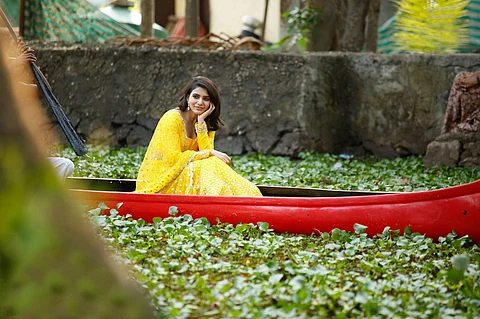

Samantha Akkineni has self-confessedly managed to climb out of that long, difficult phase when she had to take on opportunities, only so audiences could get familiarised to her face. “In some films, you’re content to just stand behind a star,” she says. Eight years since, she’s secure in her space now, and can finally do what she apparently always wanted to do: “Strong roles in good stories”. The Tamil-Telugu bilingual, U Turn, is a film to that end.
Excerpts from a chat with the actor:
Rangasthalam, Mahanati, Irumbuthirai — all of your films this year have done well. It seems you can do no wrong right now.
(Laughs) I hope that my good fortune continues for the rest of the year too. I’ve got films like U Turn, Seema Raja, and Super Deluxe lined up. It’s quite an important year for me.
Do you attribute this to chance, or is there something you reckon you’re doing right?
I think when you’ve been in the industry for as long as I’ve been, you get smarter at taking calculated leaps of faith. For a heroine, the first few years is typically about getting the audience used to your face. To achieve this, you do films even if it means you’re simply standing behind the hero. Think about it. If I’d done a U Turn at the beginning of my career, who would have seen it? But it’s not like I’ve suddenly switched to doing such strong roles. This is something I always wanted, but it just takes time.
Would you say that this freedom you enjoy today has helped you better contribute to the art that is cinema?
Absolutely. I’m doing films for the love of the art. Right now, I don’t feel like I am part of a rat race anymore. It doesn’t matter to me, for instance, if I’m not featured prominently in a poster.
But it does help that U Turn posters are designed around your character?
(Laughs) It makes it seem like I’m full of myself, no? But I’m just trying to say that about two years back, I’d get worried about my standing if I didn’t have a film with a star. Today though, not really.
The year’s films have also allowed you to play roles diverse characters, haven’t they? On one end, there’s Rangasthalam’s Ramalakshmi, a character whose way of life must be far removed from yours, and on the other, there’s Rachana from U Turn, an urban character you were likely able to relate to a lot more.
Before I did Rangasthalam, I’d never been to a village. It was, in a sense, a bit of a shock for me. I don’t believe I did much homework either, but on the first day of the shoot, I was still able to quickly become the character, and belong to that village. Ultimately, I think it’s about empathy, and from childhood, it’s been a strong trait of mine. I can relate easily to other people’s circumstances. I know film is fiction, but even in those fake situations, I try to be as honest as possible.
U Turn’s Rachana, as you say, is a more relatable character. She’s someone with no frills, and could so easily be me. It’s rare to get such a real character. Usually, we only get to play women who are much less intelligent than we are. Thankfully, for once, I didn’t have to dumb myself down for the character.
Characters are shaped mostly in writing, but partly in also who plays them. What do you suppose you have brought to Rachana’s character that Shraddha Srinath in the original didn’t?
I’ve already had people ask me if I play a more innocent journalist in this film. I tell them no; that it’s just my face. (Laughs) Shraddha Srinath has a strong face. I didn’t even realise that my playing this character could add these new facets to Rachana.
While on U Turn, I remember that in the original, Rachana was shown to work for The New Indian Express. You guys better not have changed that in the remakes.
(Laughs) Sorry. Hope it won’t affect the reviews!
I am reliably told you are allergic to glycerine. Did that make it hard to pull off the many emotional scenes in U Turn?
Thankfully, I’m not the sort of actor who has to work herself up before a scene. I can summon tears at will. With due respect to method actors, I think truth comes out of spontaneity. Even if I fumble or make mistakes in a scene, I believe that as long as it comes from a true place, the audience will enjoy being surprised. I think they like it better than ‘intelligent acting’. And mind you, it’s not like I have to draw from the sorrows of my life or anything. Just as I can fake a laugh for a scene, I can cry. Other artistes are often surprised by this, but it has never seemed like a big thing for me.
Even though the original was widely well-received, its end portions were thought of as a letdown.
Pawan Kumar has taken this script on with a vengeance. The climax, this time, will surprise everyone. There are many other improvements too. He didn’t make this bilingual to simply rest on the laurels of the first. At every step, he was looking to improve upon what he did in the Kannada film. He had more budget this time around, and that helped too. The visuals are as he imagined they would be. Even for those who have watched the Kannada original, this film will feel fresh. There are very few films that linger well after you step out of the theatre. U Turn is one of them. And I’m glad I’m able to do my bit to help the story get a larger audience. It’s a story that deserves it.